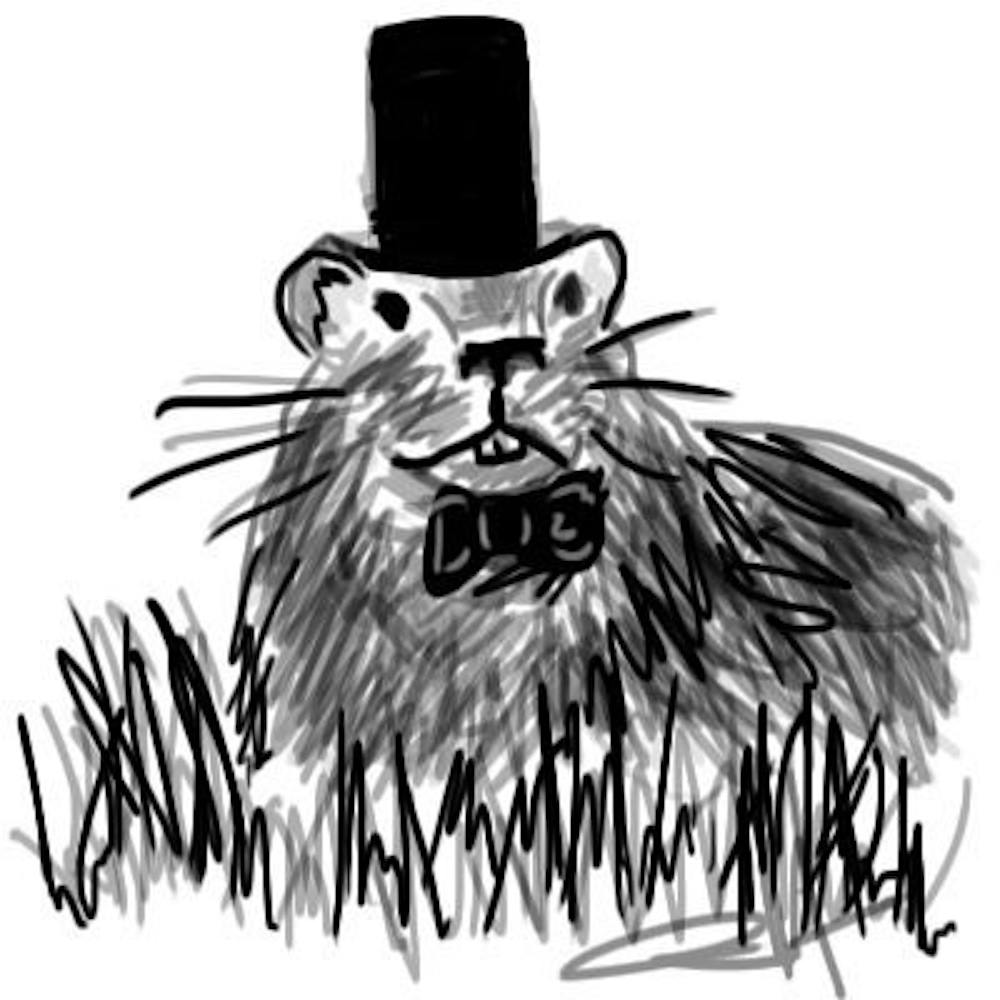When one furry rodent pokes his head out of his burrow, he enters a spotlight of media attention as he decides whether winter is over.
His name is Punxsutawney Phil, and he is the star of Groundhog Day.
According to groundhog.org, the tradition of Groundhog Day may come from Candlemas, a Christian holiday in early Europe brought by Germans to Philadelphia.
An old English saying indicates:
"If Candlemas be fair and bright, Come Winter, have another flight;\0x2028If Candlemas brings clouds and rain,\0x2028Go Winter, and come not again."
Groundhog Day was first observed in America in the 1800s.
Groundhog Day is made possible by a group of men known as the Groundhog Club's Inner Circle.
Known for their black tuxedos and top hats, the Inner Circle not only carries on the holiday's traditions and plans the events, but they also are solely responsible for the care of Phil.
Phil comes out to look for his shadow and make his forecast Feb. 2 of each year. According to legend, if he sees his shadow, six more weeks of bad weather will follow. If he doesn't see his shadow, spring will come early.
Phil makes his annual prediction from Gobbler's Knob in Punxsutawney, Penn.
According to the Stormfax weather almanac, he is correct 39 percent of the time.
Gates open at 3:00 a.m. and Phil's prognostication is set for daybreak, approximately 7:30 a.m. Celebrations start at midnight and include hot chocolate and cookies until noon.
Since the 1993 release of the popular movie "Groundhog Day" starring Bill Murray, crowds of up to 30,000 people have turned out to celebrate.
Phil's predictions the last 10 years as reported by groundhog.org:
2011: Did not see his shadow, reporting an early spring
2010: Saw his shadow
2009: Saw his shadow
2008: Saw his shadow
2007: Did not see his shadow; the morning was cloudy with light flurries.
2006: Saw his shadow
2005: Saw his shadow
2004: Saw his shadow
2003: Saw his shadow as Pennsylvania's newly elected Gov. Ed Rendell looked on from Gobbler's Knob.
2002: Saw his shadow at the largest event in 116-year history with an estimated 30,000 people celebrating.
Do you like this story? The Plainsman doesn't accept money from tuition or student fees, and we don't charge a subscription fee. But you can donate to support The Plainsman.





